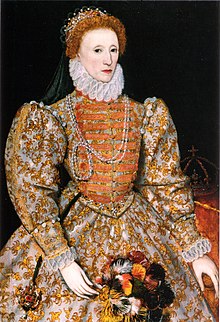Today's Persistence of Vision Tour Stops include:
1) Guest Post at Doodle's Book Blog and
2) Guest Post at Y.A. Storyteller
Historical Tidbit
Did you know...
That the Pied Piper of Hamelin was probably based on a child crusader?
So anyone who follows my medieval tidbits knows I have a thing for the crusades, and also am intrigued by the Pied Piper legend. Well, I think I've finally found the most accurate historical tidbit that the legend is based on.
I've done posts before on both
the Pied Piper and
the Children's Crusade (click the links if you want to read them) but here's how the histories (what little we have) syncs up.
In the spring of 1212, a twelve-year-old French orphan boy had a vision. His name was Stephen and believed he saw Christ, who told him that the reason the Crusades had failed (for the Christians) was that the hearts of the crusaders were impure. Where sinful adults had failed, good-hearted children would prevail. He was promised that, should he gather an army of children for a crusade, the waters of the Mediterranean would part from them, as they did for Moses of old, so the children could walk to the Holy Lands on dry ground and conduct their crusade.
He began preaching in the streets, and his impact on the many orphan children of Europe was profound. After hearing of Stephen's crusade, the news of which spread like wildfire through Europe, a German boy named Nicholas, the son of a wealthy farmer, decided to join. But more than that, he decided to recruit his own army, get to the Mediterranean by way of Italy, and meet Stephen in the Holy Lands. Nicholas' father encouraged him in this. Nicholas, like Stephen, began going from town to town, preaching Christ and the holy crusade, and even performing miracles, according to some accounts. Though, whether these were truly miraculous feats or the kind of miracles people see because they want to is difficult to decipher from our limited records. It is believed that Nicholas was the mystical Pied Piper. In the small German village of Hamelin, he offered to help with their rat infestation for a price. When they refused to pay it, he led them out of town while playing music on his flute. None of the children ever returned home.
And why not?
 |
Stephen's group at the Mediterranean
Source |
Because all of these children met with tragedy. Stephen's group waited for their miracle at the Mediterranean for days. Finally two men who owned a fleet of ships offered to support their crusade by ferrying them across the sea. Stephen saw it as an answer to their prayers. Two of the ships were caught in a story and dashed to pieces. All passengers, including Stephen, were drowned in the arms of the mighty sea. The other ships ended up in Africa, where the deceptive ship owners sold them into abject slavery.
Nicholas' group marched over snow-covered mountains to get to Italy. Many died of hunger, thirst, fatigue, and exposure to the elements. When they, too, failed to find their miracle at the Mediterranean, they marched south toward Rome to see the pope. They were overtaken by an army of unknown leadership in the same place Spartacus had made his stand hundreds of years before. There, the children were subject to numerous cruelties by sadistic soldiers.
Eventually the church put a stop to cruelty and the children were allowed to see the pope, who wept for the children's faith and hardship. He counselled them to return home and await the time when he would call for their help in the next adult crusade.
The children obeyed, though few made it home. Many people had been happy to send their children to the crusade, believing that, because they were children and about the work of God, they would be protected. But tens of thousands died, and none but possibly a bare handful even made it to the Holy Lands. Very few who went ever returned home. Because of the fiasco it turned into, people became bitter, calling the children they had once supported foolish and mad. They had less help on the road home. Many died trying to get there. They were scorned, laughed at, and abused.
Meanwhile, in a tiny, childless village in Germany, a stained-glass window was erected, telling the story of a rat infestation and a friendly, colorfully-dressed piper. It ended with all the town's children walking out of the village to the haunting notes of the piper's flute.
This is a story I'd like to portray through historical fiction, if I can ever get back to my historical stuff, but it'd definitely be a tragic one. Still, it's a story that isn't well-known today.
What do you think? Is this an important story to know? One you would read?
Remember, knowledge of our past is our inheritance. What we do with that knowledge will shape our destinies.
















